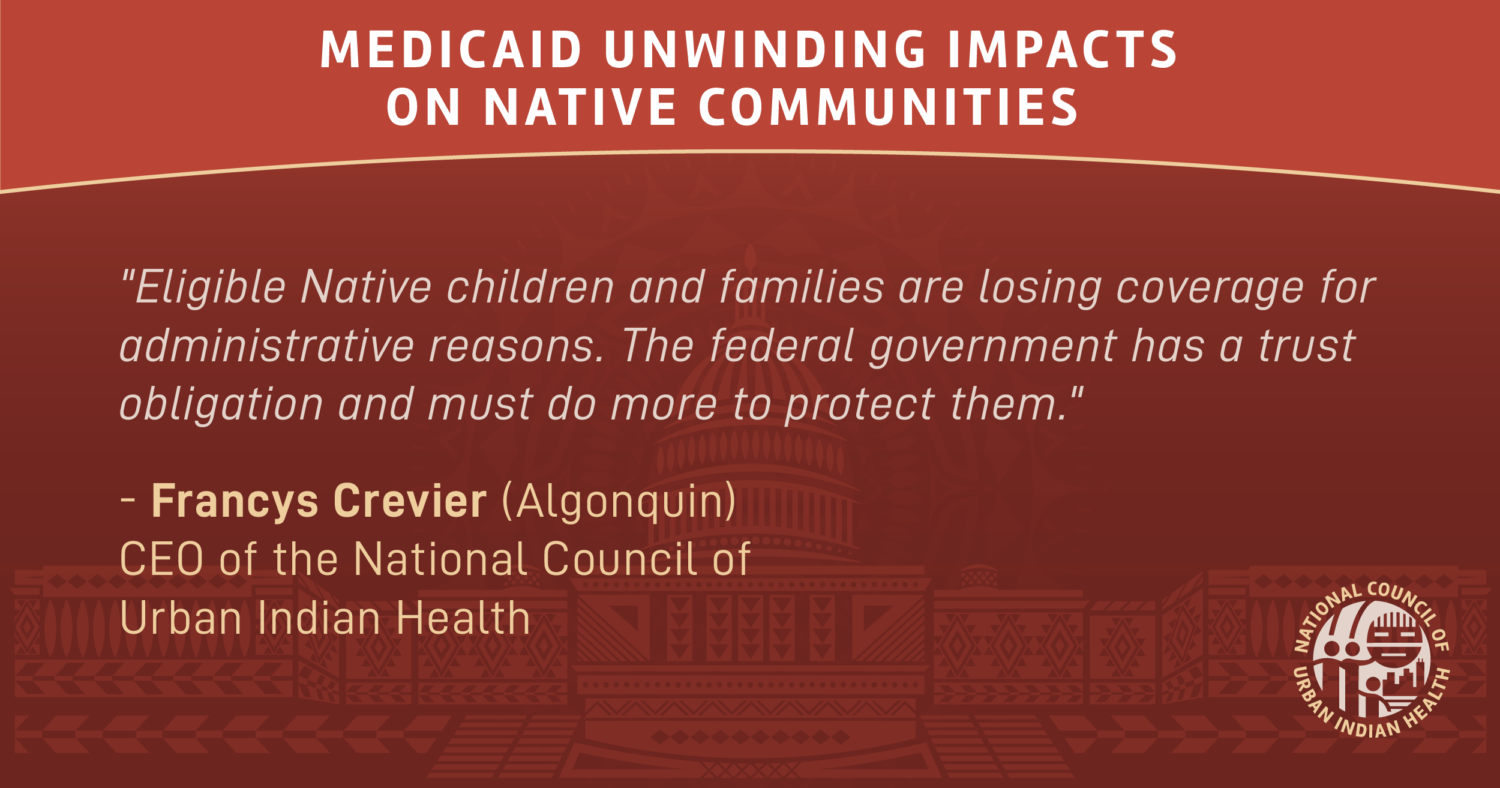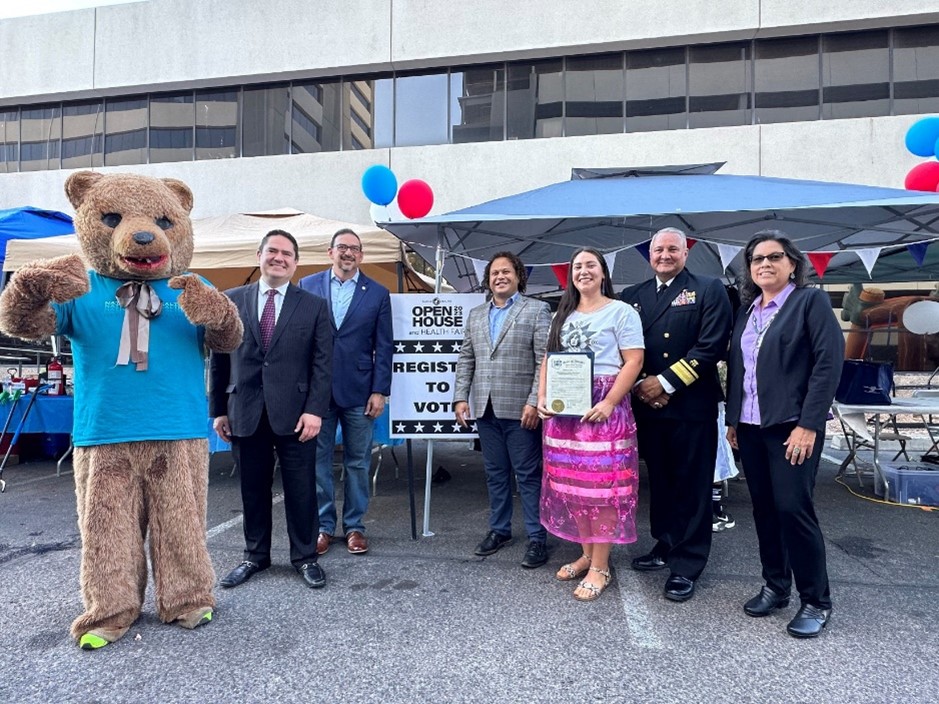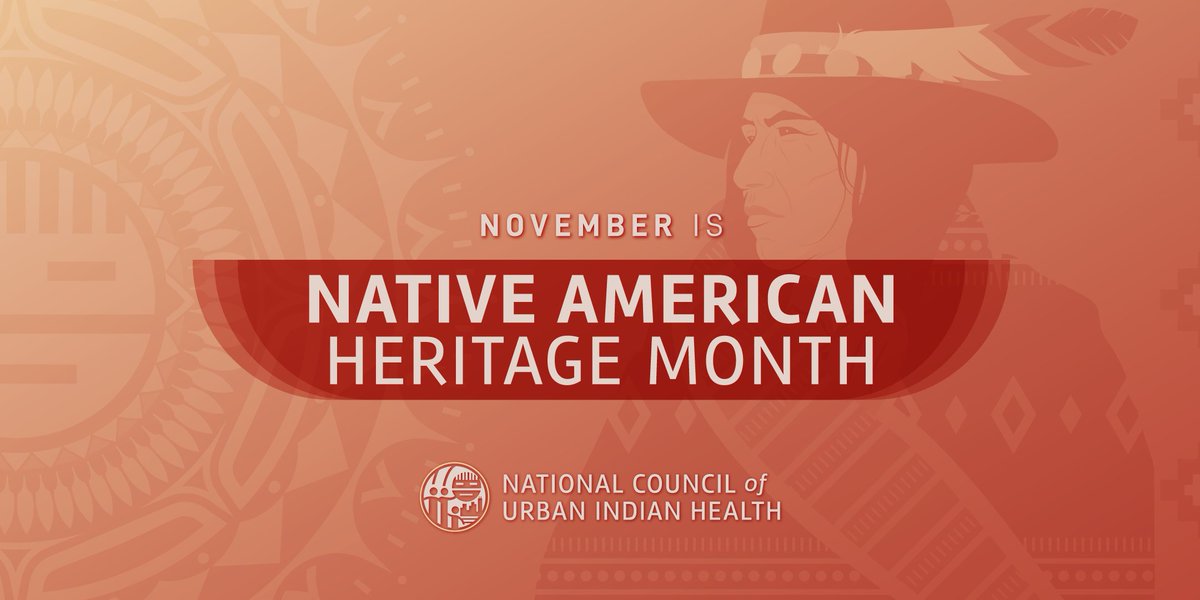New Report Estimates 400,000 Native Americans Terminated from Medicaid During Unwinding
NCUIH Joins 8 Organizations in Issuing Report on Impacts of Medicaid Terminations
“The report highlights the disproportionate impact Medicaid unwinding is having on Native communities,” said Francys Crevier (Algonquin), CEO of the National Council of Urban Indian Health. “Medicaid and CHIP coverage are critical to fulfilling the United States’ trust responsibility to maintain and improve Native health, as inadequate insurance coverage is a significant barrier to healthcare access for Native people. Eligible Native children and families are losing coverage for administrative reasons and the federal government has a trust obligation and must do more to protect them.”
The report is co-authored by the Asian and Pacific Islander American Health Forum, the Leadership Conference on Civil and Human Rights, NAACP, the National Council of Negro Women, the National Council of Urban Indian Health, the National Urban League, the Southern Poverty Law Center Action Fund, UnidosUS, the Coalition on Human Needs, and Protect Our Care.
Report: Six Months into Unwinding: History’s Deepest Medicaid Losses Demand State Action
From UnidosUS:
When Medicaid pandemic protections expired on April 1, 2023, states were allowed to redetermine eligibility and begin terminating families’ Medicaid for the first time since February 2020.
During the first six months of this “unwinding,” more people have lost Medicaid than during any two-year period in American history. More than half of the 10 million people terminated from Medicaid thus far are estimated to come from communities of color. And more than 70% of people terminated from Medicaid may still be eligible. Their coverage is ending because of nothing more than missing paperwork, often resulting from needless state-imposed red tape and bureaucracy.
The power of state policy to determine unwinding results is illustrated by one key fact: if all states had paperwork termination rates as low as the 10 best states, two-thirds of paperwork terminations would have been prevented, and 4.5 million people would never have had their Medicaid taken away because of state-imposed red tape and bureaucracy.
We support the administration’s efforts to enforce federal law. And we call on all states to reduce procedural termination rates to the lowest possible level. Until state elected officials have reformed their Medicaid systems so that they would trust them with their own families’ health care, we urge states to place on hold all terminations that result from nothing more than missing paperwork.
Background on Native Populations and Medicaid
Fact Sheet: Impact of Medicaid on Health Care for American Indians and Alaska Natives
- As of 2020, there are over 9.7 million AI/AN people in the United States.
- In 2020, over 1.8 million AI/AN people were enrolled in Medicaid in the United States.
- This means that almost 1/5 of the AI/AN population is covered by Medicaid.
- In 2019, Medicaid covered 1.3 million urban AI/AN people, including 30% of urban AI/AN adults under age 65.
- Comparatively, Medicaid covered 19.8% of all urban U.S. adults under age 65.
- UIOs are health care clinics that provide key services to almost every one of the top metro areas where IHS-Medicaid beneficiaries live.
- In 2021, 55% of the total population served at UIOs were Medicaid beneficiaries, and 46% of the AI/AN population served at UIOs were Medicaid beneficiaries.
- As of FY 2020 (most recent data available), Medicaid accounted for about 10% of the funding for IHS programs.





